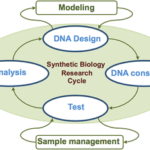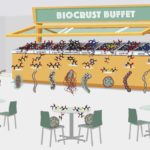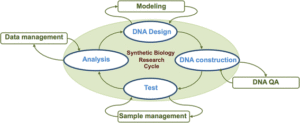 The 2016 Joint BioEnergy Institute (JBEI) publication “End-to-end automated microfluidic platform for synthetic biology: from design to functional analysis” has been selected as the Journal of Biological Engineering Publication of the Year. Gregory Linshiz, former post-doctoral researcher and Director of Synthetic Biology Informatics Nathan Hillson conceived the project that served as the basis of this research. In the paper the authors present a programmable, multipurpose microfluidic platform and associated software and apply the platform to major steps of the synthetic biology research cycle: design, construction, testing, and analysis. The formal announcement of the award will be made at this year’s Annual Meeting of Institute of Biological Engineering (March 30 – April 1, in Salt Lake City, UT).
The 2016 Joint BioEnergy Institute (JBEI) publication “End-to-end automated microfluidic platform for synthetic biology: from design to functional analysis” has been selected as the Journal of Biological Engineering Publication of the Year. Gregory Linshiz, former post-doctoral researcher and Director of Synthetic Biology Informatics Nathan Hillson conceived the project that served as the basis of this research. In the paper the authors present a programmable, multipurpose microfluidic platform and associated software and apply the platform to major steps of the synthetic biology research cycle: design, construction, testing, and analysis. The formal announcement of the award will be made at this year’s Annual Meeting of Institute of Biological Engineering (March 30 – April 1, in Salt Lake City, UT).
Applications for 2017 iCLEM Program Are Now Open
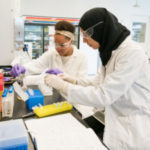 JBEI’s iCLEM program offers paid summer science experience to current sophomores and juniors in Alameda, Contra Costa, and San Francisco schools. Selected students will complete a real-world biofuels research project in a state-of-the-art lab, prepare for the college admissions process, and explore STEM careers. Application deadline is March 12. Read more on the JBEI website.
JBEI’s iCLEM program offers paid summer science experience to current sophomores and juniors in Alameda, Contra Costa, and San Francisco schools. Selected students will complete a real-world biofuels research project in a state-of-the-art lab, prepare for the college admissions process, and explore STEM careers. Application deadline is March 12. Read more on the JBEI website.
JBEI and ABPDU Raise Food and Funds for Local Food Bank
 During their annual food drive, JBEI and ABPDU raised food and funds for the Alameda County Community Food Bank. A total of $2514 was raised in monetary contributions for the Virtual Food Drive. A friendly competition was promoted between ABPDU and JBEI’s Divisions to see which group could raise more pounds of food. JBEI’s Operations staff collected the highest number of pounds of food this year. This initiative helped raise awareness of food insecurity of children, adults and seniors in the Alameda County. To learn more about how you can help visit http://www.accfb.org/.
During their annual food drive, JBEI and ABPDU raised food and funds for the Alameda County Community Food Bank. A total of $2514 was raised in monetary contributions for the Virtual Food Drive. A friendly competition was promoted between ABPDU and JBEI’s Divisions to see which group could raise more pounds of food. JBEI’s Operations staff collected the highest number of pounds of food this year. This initiative helped raise awareness of food insecurity of children, adults and seniors in the Alameda County. To learn more about how you can help visit http://www.accfb.org/.
‘Wild Things’: 7 Bacterial, Fungal and Microbial Discoveries
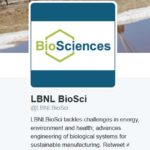 The Biosciences Area launched its Twitter account one year ago. @LBNLBioSci has served as a tool to disseminate the Area’s achievements in energy, environment and health, and has so far attracted 409 followers. To celebrate the one year anniversary, the Biosciences communications team has released a listicle on seven of the Area’s bacterial, fungal and microbial discoveries. Read the listicle here and follow @LBNLBioSci.
The Biosciences Area launched its Twitter account one year ago. @LBNLBioSci has served as a tool to disseminate the Area’s achievements in energy, environment and health, and has so far attracted 409 followers. To celebrate the one year anniversary, the Biosciences communications team has released a listicle on seven of the Area’s bacterial, fungal and microbial discoveries. Read the listicle here and follow @LBNLBioSci.
Keasling Featured in Create Magazine
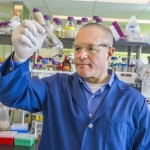 Jay Keasling, Associate Laboratory Director for Biosciences was featured in Create, Engineers Australia’s Magazine. In the article Keasling discusses how synthetic biology tools offer solutions to some of the major global challenges. Read more.
Jay Keasling, Associate Laboratory Director for Biosciences was featured in Create, Engineers Australia’s Magazine. In the article Keasling discusses how synthetic biology tools offer solutions to some of the major global challenges. Read more.
- « Previous Page
- 1
- …
- 27
- 28
- 29
- 30
- 31
- …
- 37
- Next Page »
Was this page useful?


